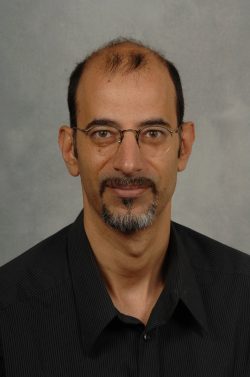 |
| Prof. Panagiotis Tsiotras |
Georgia Tech Aerospace Engineering professor Panagiotis Tsiotras is part of a multi-disciplinary team that has recently been approved by NASA to pursue a four-year research project to improve the performance of autonomous systems on advanced air mobility (AAM) missions.
Assured Autonomy for Aviation Transformation is the name of the project that received $8 million in funding through NASA's University Leadership Initiative (ULI) program. The entire project will be headed up by Stanford University and will also include collaborations with researchers from the University of New Mexico, Hampton University, the University of California, Berkeley,Massachusetts Institute of Technology and the MIT Lincoln Laboratory, and United Technologies Research Center Inc. Assured Autonomy is one of five collaborative teams approved for the 2020 round of the ULI - a NASA program that tasks universities with developing substantive investigations that address one of the agency's research thrusts.
All of the student researchers involved in the ULI teams are expected to gain critical experience leading a multidisciplinary team made up of partners from other universities and industry, especially representing those who traditionally have not applied their skills to aviation problems.
Joining Tsiotras will be Georgia Tech College of Computing professor, Dr. Frank Dellaert. Their team will take a deep dive into the development of tools that ensure machine learning in autonomous systems used by unmanned AAM aircraft work as expected in real-time. The team will also well as to employ fault detection and recovery methods if they do not, particularly in situations involving taxiing, landing and collision avoidance.
The Assured Autonomy ULI project will develop new algorithms for fail-safe integration of (machine) learning components and related algorithms in aviation systems with high confidence and assurances of safety. The Georgia Tech team will be primarily responsible for improved integration of perception and planning modules in the autonomy architecture. They will also employ the quantification and mitigation of uncertainty for failure detection, identification, and recovery during planning tasks,
“In the past several years there has been a proliferation of (machine) learning algorithms that have shown tremendous success in a variety of pattern recognition tasks," said Tsiotras. "Incorporating these learning-enabled-methods within feedback loops to control safety-critical autonomous systems in aviation --such as aircraft, helicopters, and air-taxis -- has a huge potential, but also poses major challenges. Aviation systems have to operate at extreme safety margins and guarantees - much beyond of what is possible using current machine learning algorithms."